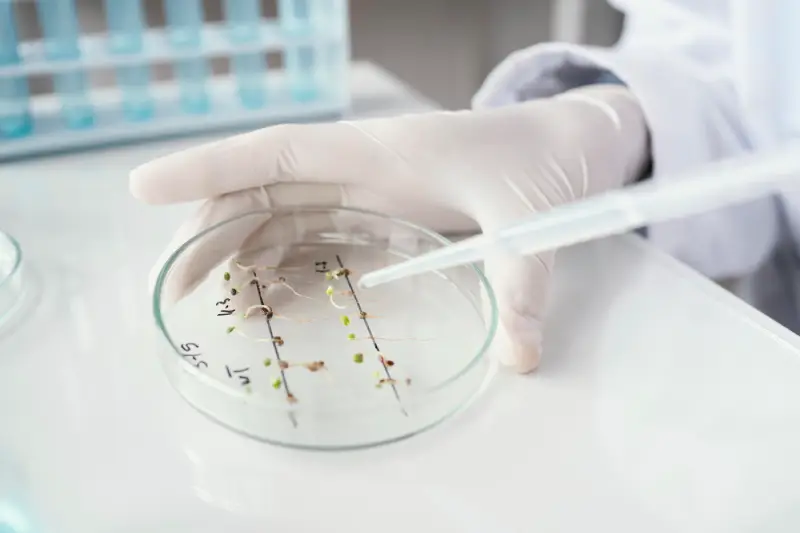Welcome to the Diploma of Quality Assurance – Manufacturing and Management program at [Your University Name], accredited by AACTD. This comprehensive program is designed to equip students with the knowledge and skills necessary to excel in quality assurance roles within the manufacturing and management sectors.
🎯 Program Goals
Master Quality Standards: Understand and apply international quality standards such as ISO 9001 and IATF 16949 to ensure compliance and enhance product quality.
Process Improvement: Develop the ability to design, conduct, and analyze process improvement initiatives using tools like Lean Six Sigma.
Leadership in Quality Management: Cultivate leadership skills to manage quality assurance teams and drive organizational excellence.
Strategic Decision-Making: Learn to make data-driven decisions to improve manufacturing processes and product quality.
📘 Program Learning Outcomes
Upon successful completion of the program, graduates will be able to:
Evaluate Quality Standards: Assess and document requirements of international quality standards to ensure compliance in manufacturing environments.
Implement Process Improvements: Design and analyze experiments for process and product development, recommending appropriate improvement tools.
Apply Statistical Methods: Utilize statistical analysis to monitor and improve manufacturing processes.
Conduct Quality Audits: Plan and execute quality audits to identify areas for improvement and ensure adherence to quality standards.
Manage Quality Systems: Develop and maintain quality management systems that align with organizational goals.
🧭 Pathways Available
Advanced Certifications: Prepare for certifications such as Certified Quality Technician (CQT), Certified Quality Inspector (CQI), and Six Sigma Yellow Belt.
Further Education: Opportunities to pursue advanced degrees in quality management, manufacturing engineering, or related fields.
Career Advancement: Position yourself for roles such as Quality Assurance Manager, Process Improvement Analyst, or Compliance Officer.
💼 Possible Career Options
Graduates can explore various career paths, including:
Quality Assurance Manager: Oversee quality assurance processes and ensure compliance with industry standards.
Process Improvement Specialist: Analyze manufacturing processes and implement improvements to enhance efficiency and quality.
Compliance Officer: Ensure that manufacturing operations adhere to regulatory and quality standards.
Quality Auditor: Conduct audits to assess compliance with quality management systems and identify areas for improvement.
Production Supervisor: Manage production teams to ensure products meet quality specifications.
📚 Program Curriculum and Structure
Duration: 1 Year (2 Semesters)
Semester 1:
Introduction to Quality Assurance: Foundations of quality management and its role in manufacturing.
Statistical Process Control: Application of statistical methods to monitor and control manufacturing processes.
Quality Standards and Compliance: Study of international quality standards and regulatory requirements.
Process Improvement Techniques: Introduction to Lean, Six Sigma, and other process improvement methodologies.
Semester 2:
Quality Auditing: Principles and practices of conducting quality audits.
Quality Management Systems: Design and implementation of comprehensive quality management systems.
Capstone Project: A practical project applying learned concepts to real-world scenarios.
📝 Assessment Methods
Written Examinations: Assess understanding of theoretical concepts.
Practical Assignments: Application of quality assurance tools and techniques to case studies.
Capstone Project: A comprehensive project demonstrating the ability to apply program knowledge to practical challenges.
Presentations: Oral presentations to develop communication skills and articulate quality improvement strategies.
🎓 Entry Requirements
Educational Background: A high school diploma or equivalent.
English Proficiency: Non-native English speakers are required to have an IELTS score of 6.5 or higher.
Mathematical Skills: Proficiency in basic mathematics, including algebra and statistics.
Technical Aptitude: An interest in manufacturing processes and quality management.
🏆 Awards and Recognitions
Graduates and the program itself may be eligible for various local and international awards, including:
Malcolm Baldrige National Quality Award: Recognizes U.S. organizations for performance excellence.
Shingo Prize for Operational Excellence: Awards organizations demonstrating a culture of continuous improvement.
Deming Prize: Honors companies that have achieved distinctive performance improvements through the application of Total Quality Management.
EFQM Global Award: Recognizes European organizations with excellent and sustainable results across all areas of the EFQM Model.







